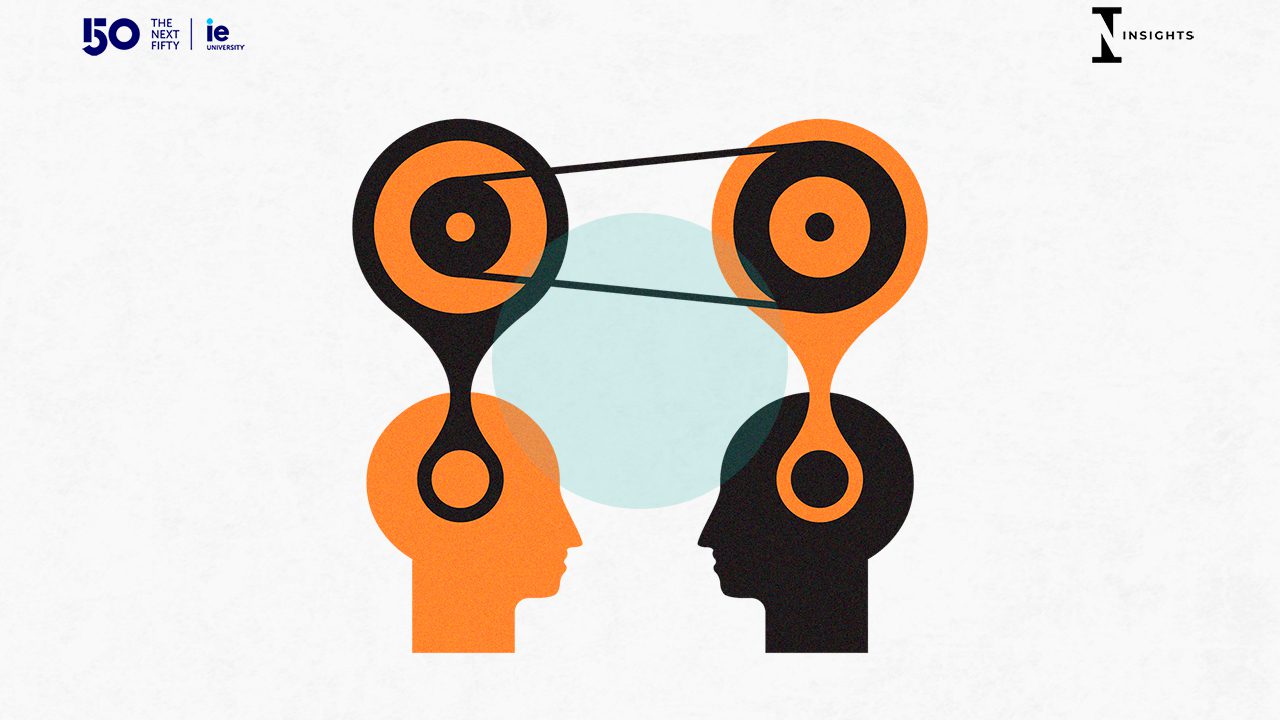Link copied
IE insights - IDEAS TO SHAPE THE FUTURE - Education

The Future of Mentoring is the Future of Management
Mentoring will help organizations be "more human" in the age of tehcnology and amplify under-represented voices.
There are five generations currently active in today’s workplace. This, alongside an increased disclosure of personal characteristics (such as gender, sexuality, neurodiversity, disability, and ethnicity) is a boon to the modern-day workplace. It does also open up the opportunity for views and opinions to become polarized and disjointed, something that is particularly likely if a company culture of collaboration and inclusivity is not prioritized.
After the pandemic, multiple research studies found that leaders need to be “more human” in their approach to leading organizations. The business world now operates within a high VUCA environment and organizations must pivot their culture towards a focus on skills as opposed to jobs. However, when we talk about leadership in the future it is important to note that it is not the idea of leadership to which we have grown accustomed and, indeed, the archaic hierarchical model of leadership is already losing its effectiveness. Employees – the people who are the company – are gaining more power.
Employees are already showing us that they need to feel respected, listened to, and ultimately valued. This is where mentoring can make a difference – and in the future, it will have an increasingly prevalent role throughout organizations, not only in the capacity of HR and company culture but in a tactical, day-to-day, operational manner. Reverse and reciprocal mentoring will become the norm because of the way it helps amplify under-represented voices, voices that will demand and deserve to be heard and upon which the future success of any company will be dependent. By matching senior leaders with mentors who can provide a different perspective on the world – whether through age, ethnicity, race, sexuality, or disability – this type of mentoring is a management tool that lessens the gaps among employees and empowers them to share their views and impact change.
Mentoring is, in fact, already extremely popular. Eighty-four percent of Fortune 500 companies now offer mentoring programs and the demand for mentoring software is set to increase by 20% over the next seven years. Now, just imagine the role and shape mentoring will take twenty years from now. It will completely revolutionize what we consider today as “management.”
Across all age groups, from Gen-Z to Baby Boomers, the resounding message is that individuals require career development, meaningful work, and compassionate and inspiring leadership to feel satisfied in their roles and mentoring is key in addressing these ‘softer’ needs of employees.
Benefits of Mentoring
- Human –When we build deeper relationships at work, our network expands, we feel more supported and therefore our sense of belonging increases.
- Skills enhancement – The ability to have a deeper understanding of someone else’s role, whether it is directly related to what you do or not, will help to develop a growth mindset
- Organizational silos reduced – Have you ever been surprised at how quickly solutions can be found when different departments simply take the time to talk to each other, in a free, non-defensive, and unhurried way?
- Employee Engagement – When employees feel more connected to each other and the organization, their level of commitment increases and employee attrition decreases. This means that the discretionary effort to ensure that the best solutions are found for each other and ultimately for customers is pursued more intentionally.
The combined outcome of the above is that organizations benefit from an increase in profits through increased productivity, reduced attrition, and better customer satisfaction.
As we continue to evaluate the impact that artificial intelligence will have on the workforce, it is clear that organizations must also become more “human” if they are to retain the best talent. Mentoring will most certainly be a tool that will be implemented more widely to help achieve this.
© IE Insights.
